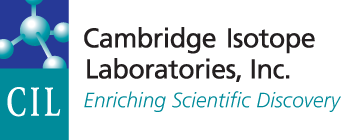Organic Acid Mixes
Organic acids (OAs) play essential roles in energy metabolism pathways (e.g., glycolysis, tricarboxylic acid cycle), with the short-chained OAs emerging as important regulators of host immune response and transcriptional regulation. OAs are byproducts of amino acids and are intermediates in various biochemical pathways. To aid MS-based metabolomics research of organic acids, CIL has formulated a master organic acid mix. This single-vial mixture comprises 33 organic acids (MSK-OA-1) and is also available as an unlabeled mix (MSK-OA-US-1).
Related Resources
➤ Stable Isotope Standards for Mass Spectrometry
➤ Stable Isotope-Labeled Products for Metabolic Research
➤ Stable Isotope Labeled Mixtures, Sets, and Kits
➤ Sets, Mixes, and Kits for MS 'Omics and MS/MS Screening
Application Note
➤ Organic Acid Quantitation in Mouse Muscle by Ion Chromatography-Mass Spectrometry
Organic Acid Mixtures
Featured Products
Related Products
Frequently Asked Questions
What is an appropriate solvent for reconstituting the dried-down OA mixes? Concentrated stock solutions of the labeled and unlabeled OA mixes can be prepared in aqueous solvents such as water or 0.1% formic acid (FA). Dilutions of working stocks for control and experimental sample use can then be prepared as necessary.
How many TCA cycle metabolites are present in the OA mixes? There are six TCA-related metabolites in the mix (MSK-OA). These metabolites include two keto acids (α-ketoglutarate and pyruvate), two diacids (succinate and fumarate), one hydroxy acid (malate), and one other acid (citrate). In addition to these intermediates, there are two OAs (DL-2-hydroxyglutarate and lactate) that are off-shoots to the TCA cycle, but could also be considered related.
How have the mixes been measured? The OA mixes have been measured by various analytical methods, including HILIC-MS under negative ESI.
If alternate organic acids are needed, can additional standards be provided? Yes, we offer a breadth of individual stable isotope labeled organic acids beyond what is included in the mix. In the event that your usage is routine, we can evaluate a custom mix or add-on vial to meet your needs. Refer to the Custom Mix Request form to complete your request for quotation or contact your local sales representative.
Example Reference
DeArmond, P.D.; Bunch, D.R. 2022. Quantitation of non-derivatized free amino acids for detecting inborn errors of metabolism by incorporating mixed-mode chromatography with tandem mass spectrometry. J Mass Spectrom Adv Clin Lab, 25, 1-11. PMID: 35637738


 Deutsch (Deutschland)
Deutsch (Deutschland) Español (España)
Español (España) Français (France)
Français (France) 中文(中国)
中文(中国)